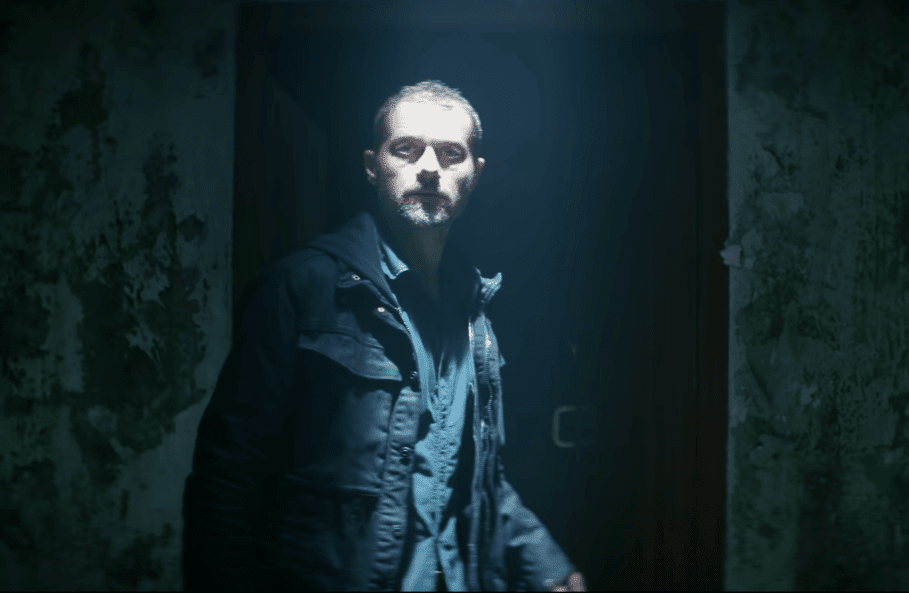
Written by Samuel Niles
There is exactly one brilliant scene in The Empty Man.
It involves ex-cop James Lasombra (James Badge Dale) exploring a campground during his investigation of a missing teenager. He’s come across some cult-like activity, as a large group of beings chant while running around a bonfire. Some surreal “could it all be in his head” stuff happens, and when that all clears up, James is about to walk away…only for the fire to suddenly be out.
At first, we’re meant to think that the group is gone.
But they’re not.
James turns around to see them exactly where they were, barely distinguishable from the surrounding darkness, slowly waving back and forth in sync as they make their way towards him.
The scene is fantastic. It’s also, unfortunately, undermined by the ensuing chase scene, which annihilates the ambiguity of whether or not the cultic beings are human.
Also unfortunate is that this is still The Empty Man’s only real highlight. The lack of other brilliant scenes is not for lack of trying on writer/director David Prior’s part (Prior adapted the script from Cullen Bunn’s graphic novel of the same name). Horror is not the only genre that lends itself to cinematic storytelling, but it may be, for better or worse, the most inherently cinematic. Bad dramas, comedies, and action films can have overtly plain and lazy filmmaking, but it seems that both the best and worst horror films will try for creepy imagery and effective sound design.
The Empty Man is no different. Each pan, cut, and creak in the floor has been labored over to try to evoke something. But none of it lands, because none of it really seems to know what it’s aiming for beyond cinematic and creepy. The film starts as an investigation of a creepy folk tale that turns out to be true, then turns into an investigation of a secret cult, and as it progresses, either lends itself to uninteresting meta commentary or tiresome is it all in their head ambiguity (what is psychiatric medication for in movies if not to make the characters ask if it’s “all in their head”?).
The tropes aren’t themselves scorched earth, but the little to nothing that The Empty Man does with them is precisely why the carefully calculated slow pans and disorienting cuts don’t amount to anything. Prior has a good eye, but he seems to want us to care about his script and images, and these half-baked ideas ultimately drag the carefully crafted images down.
Prior has potential, and you can do worse for your debut, but The Empty Man does not make proper use of it. At 137 minutes, it’s far too long and tiresome to properly recommend.

